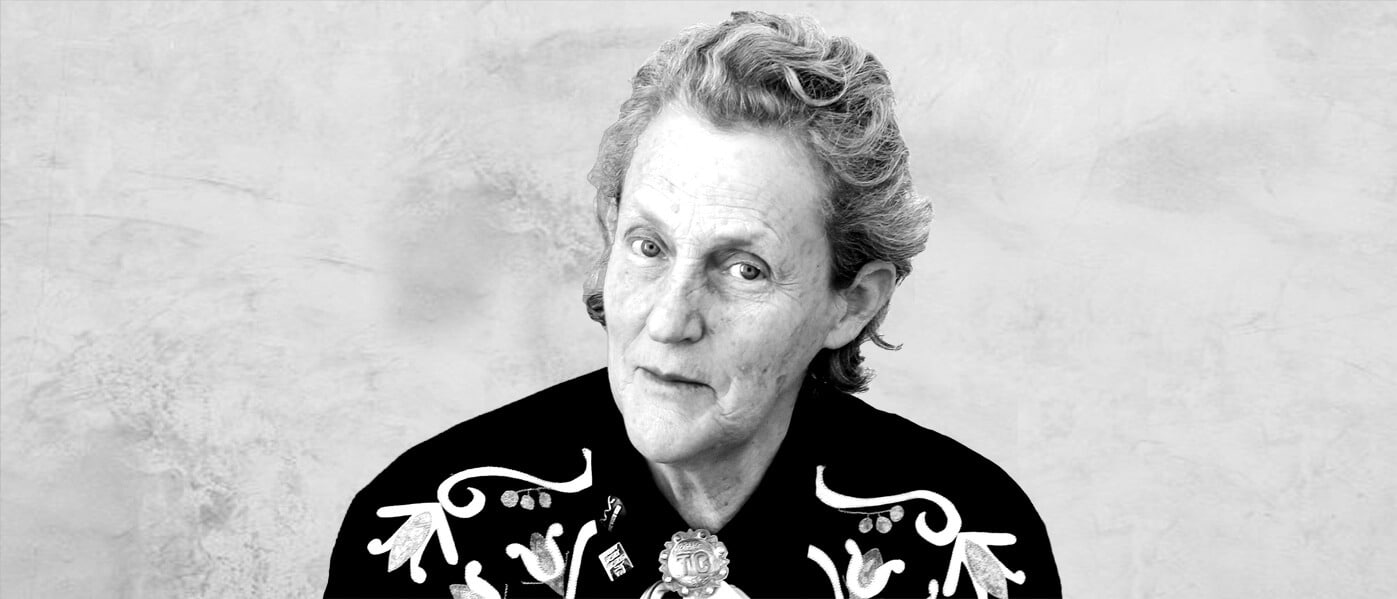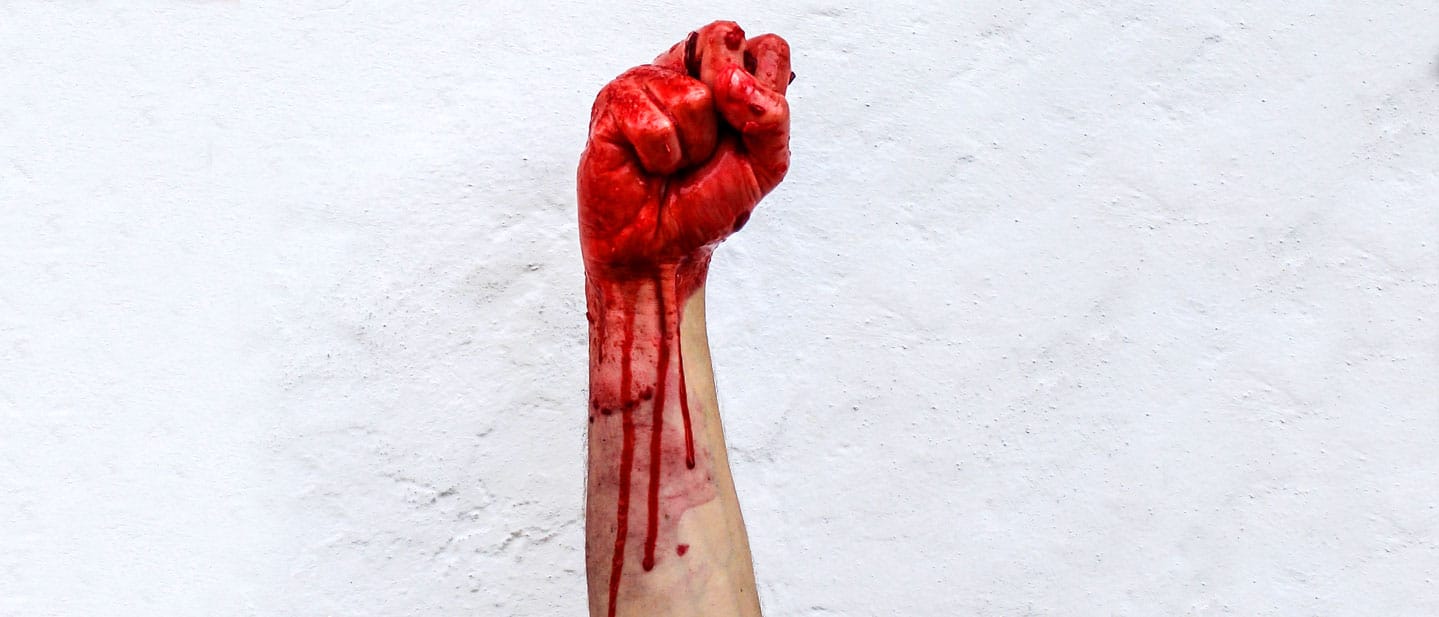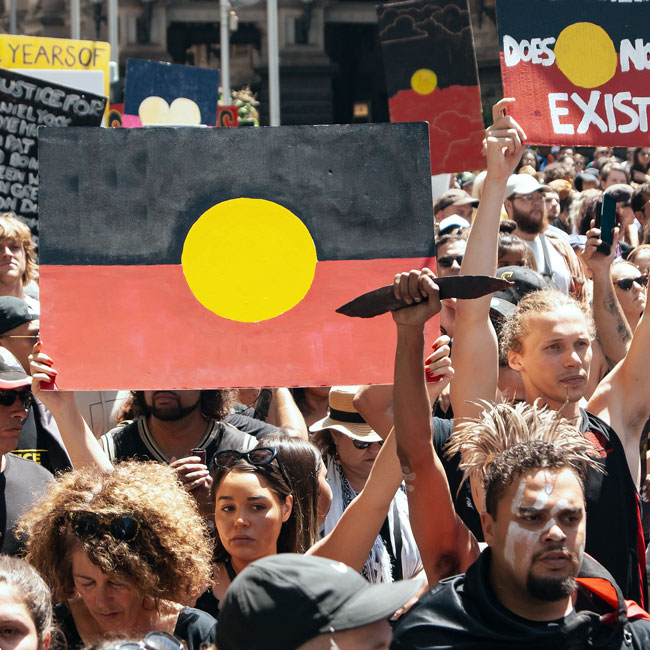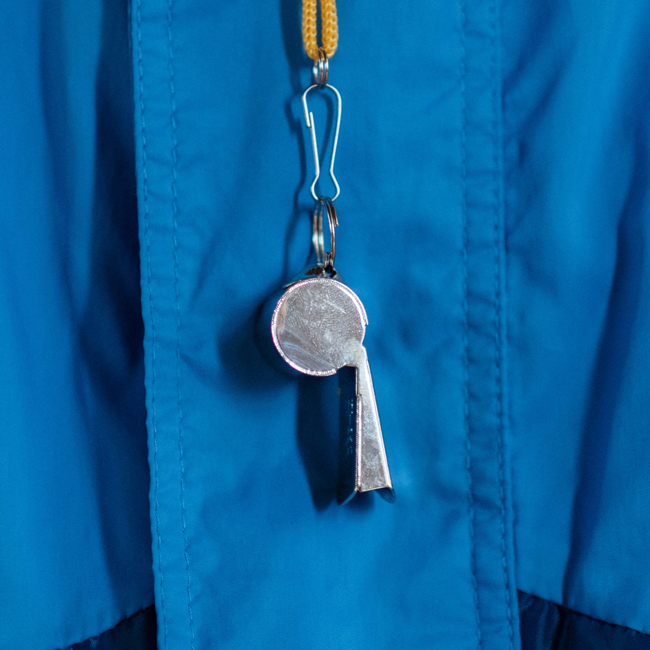Is it ethical to splash lots of cash on gifts?

Is it ethical to splash lots of cash on gifts?
Opinion + AnalysisRelationships
BY Aisyah Shah Idil 10 DEC 2018
Whether you’re a tearer, a folder, a scruncher, or a chucker, there’s nothing like opening a wrapped gift that’s especially suited to you.
Amid the hugs and backslaps it’s hard to say who it’s more satisfying for – the giver or the receiver.
But when little Millie gets the new PlayStation while Amir’s staring at his plastic water gun, the thin film of politeness peels away. We don’t just wonder why we have the gifts we do. We wonder how much they cost.
This holiday season, we’re exploring the ethical dimensions of splurging on gifts. Are there unspoken rules for those with deeper pockets? Is it killing the spirit of generosity to peer at the price tag? Or is keeping mum about money letting us pretend we don’t owe things to each other all the time?
Christmas conundrums? Book a free appointment with Ethi-call. A non-partisan, highly trained professional will help you navigate any ethical minefields this holiday season.
There are so many different kinds of purposes tied to gift giving on Christmas, or any large celebration. We like to think of these sorts of gifts as intrinsically good, making them different from bribes given for personal gain.
For some, gifts are an informal way to foster love and support in mutual relationships. They encourage closeness and dependencies between social circles to reveal links our individualism tends to hide.
They’re known to shape our moral character and encourage selfless generosity, even to remove feelings of emotional debt that have accumulated throughout the year. Though we speak of gifts as just ways to “show love and appreciation”, our reasons are often more layered than that.
This doesn’t have to be self-indulgent navel-gazing. Examining the purpose of a gift matters because it encourages us to consider if that special, one-of-a-kind purchase is the only way to fulfil it. What duties or consequences should you consider before making that jump?
The duties of gifting
If you are feeling the end of year pinch, you have a duty to yourself to make sure the gift giving season doesn’t put you into financial strife. But if that conflicts with the duty to be fair to your friends and family, ask yourself what matters more. After all, gifts are often an exchange, and appreciating someone’s thoughtfulness can come with offering a similarly tasteful gift of your own.
If the gift is for a friend or peer, we might worry about setting an expectation or precedent we can’t fulfil. If it’s for someone who would struggle to fork out a similar amount of money for a gift, would this leave them feeling uncomfortably tied to you? And if you want to spread the holiday cheer, this leaves your pool of lucky recipients fairly limited.
Nor can the growing consciousness around our impact on the environment be ignored. Are these gifts worth the cost to landfills, unethical supply chains, and our collective duty to preserve the health of the land we live on?
But let’s not dwell on the negative. There are heaps of positive consequences too. Don’t forget the good that comes from making the people around you feel extra special and appreciated. If you struggle with miserliness, or excessive penny pinching, this could be a win-win way to encourage generosity in you, and make someone else very happy. It’s always worth thinking of how your actions reflect your character.
When all is said and done, the holidays are a time to rest. The softening pleasures of food, drink, company and play don’t have to get in the way of a well examined life. In fact, slowing down our frenetic, demanding lives to allow time to recuperate may be just what we need most: the modest admission that we cannot do everything perfectly. Good enough is good enough.
That’s the spirit!
Ethics in your inbox.
Get the latest inspiration, intelligence, events & more.
By signing up you agree to our privacy policy
You might be interested in…
Opinion + Analysis
Relationships
Agree to disagree: 7 lessons on the ethics of disagreement
Opinion + Analysis
Relationships, Society + Culture
Breakdowns and breakups: Euphoria and the moral responsibility of artists
Explainer
Politics + Human Rights, Relationships
Ethics Explainer: Dignity
Opinion + Analysis
Politics + Human Rights, Relationships
Is it wrong to care about Ukraine more than other wars?
BY Aisyah Shah Idil
Aisyah Shah Idil is a writer with a background in experimental poetry. After completing an undergraduate degree in cultural studies, she travelled overseas to study human rights and theology. A former producer at The Ethics Centre, Aisyah is currently a digital content producer with the LMA.
Ethics Explainer: Hope

We hope for fine weather on weekends and the best for our buddies – an obvious statement that hardly screams ethics.
But within our everyday desires for good things, lies a duty to each other and ourselves to only act on reasonably held hopes.
The ethics of hope
One of Immanuel Kant’s simple but resonant maxims is ‘ought implies can’. In other words, if you believe someone has an ethical responsibility to do something, it must be possible. No person is under any obligation to do what is impossible. You might call me a bad person for failing to fly through the sky and save someone falling from a great height. But your condemnation will be rejected as ill-founded for the simple reason only fictional characters can perform that feat.
Many other things – including extremely difficult things – are reasonably expected of others. A person might promise to climb Mount Everest (or at least make a serious attempt) prior to their 50thbirthday. This might present the greatest challenge imaginable. Yet we know scaling the heights of Everest is possible. As such, the person who made this promise is bound to honour their commitment.
Of course, at the time of making such a promise, no person can know with absolute certainty they will be able to meet the obligation they have taken on. There are just too many variables outside of their control that can frustrate their best laid plans. Weather conditions might lead to the closure of the mountain. The need to provide personal care to a loved one could extend well beyond any anticipated period. Given this, our ethical commitments are almost always tinged with a measure of hope.
What is hope?
Hope is an expectation that some desirable circumstance will arise. Hope sometimes blends into something closer to ‘faith’ – where belief about a state of affairs cannot be proven. However, for most people, most of the time, ‘hope’ is a reasonable expectation.
For example, if a person makes commitments that critically depend on other people keeping their promises, that person cannot know for certain they can honour their word. Yet, if these people are known and trusted, perhaps based on past experience, then a hopeful dependence on their performance would be reasonable.
The same can be said of other commitments, such as promising to meet for a picnic on a particular day. You might make the plan in the hopeful expectation of fine weather and do so with good grounds based on a checked forecast predicting clear skies.
There are two things to be noted here. First, some aspects of hope depend (for their reasonableness) on the ethical commitments of other people (for example, to keep promises). It follows there will often be a reciprocal ethical aspect to the practice of ‘reasonable’ hoping.
Second, it’s not enough to be naively hopeful. Instead, one needs to take reasonable efforts to ensure there is some basis for relying on a hoped-for circumstance. This is especially so if the hoped-for circumstance is of critical importance to matters of grave ethical significance – such as making a promise to someone.
Given this, there may be good grounds to calibrate commitments in line with the degree to which you might reasonably hope for a particular circumstance to prevail. For example, rather than making an open commitment to meet for a particular picnic on a particular day it might be better to qualify the point by saying, “I promise to meet you if the weather is fine”.
‘It’s not enough to be naively hopeful.’
We often see the absence of this kind of forethought when it comes to the promises made by politicians during elections. They will make promises – probably based on hopeful projections about the future – only to find themselves accused of lying or having acted in bad faith when the promise is not honoured.
It’s insufficient for the politician to say they merely ‘hoped’ to be able to keep their word and that they now find their situation to be unexpectedly different. It would have been far better and far more responsible to qualify the promise in line with what might explicitly and reasonably be hoped for.
Two final comments. First, it should be understood a person often has some control over whether or not their hopes can be realised. As such, each person is responsible for those of their actions that impinge on the way they meet their obligations – we are not simply ‘bystanders’ who can idly hope for certain outcomes without lifting a finger to make them manifest.
Second, given our inability to know what the future holds, hope always plays a role in the process of making ethical commitments. The key thing is to be reasonable in what we hope for and to calibrate our commitments accordingly.
Ethics in your inbox.
Get the latest inspiration, intelligence, events & more.
By signing up you agree to our privacy policy
You might be interested in…
Opinion + Analysis
Relationships
Three ways philosophy can help you decide what to do
Opinion + Analysis
Business + Leadership, Politics + Human Rights, Relationships
Tim Soutphommasane on free speech, nationalism and civil society
Opinion + Analysis
Relationships
Who are you? Why identity matters to ethics
Opinion + Analysis
Health + Wellbeing, Politics + Human Rights, Relationships
Ethics in a time of coronavirus
BY The Ethics Centre
The Ethics Centre is a not-for-profit organisation developing innovative programs, services and experiences, designed to bring ethics to the centre of professional and personal life.
Big Thinker: Temple Grandin

Big Thinker: Temple Grandin
Big thinkerHealth + WellbeingRelationships
BY The Ethics Centre 4 DEC 2018
Turning a perceived disability into a new way of solving problems, Temple Grandin (1947—present) has revolutionised the meat-processing industry and changed the way the world views autism.
Temple Grandin is an autism advocate and animal scientist who works to improve animal treatment in the livestock industry. Grandin has also changed public perceptions of autism, helping educators to maximise the strengths of those with autism, rather than focusing only on deficiencies.
An animal lover and meat eater, Grandin has used her autistic trait of “thinking in pictures” to design livestock facilities and educate meat produces on how to minimise animal suffering. As a result, she says there’s been ‘light years of improvement’ in an industry where half of all cattle in the United States are handled in facilities she designed.
This isn’t enough for some animal rights activists though, who accuse her of trying to soften the image of a ‘violent’ sector.
Thinking like a cow
Temple Grandin did not talk until she was three and a half years old. She struggled to communicate throughout her childhood, and other students bullied her at school.But there was one high school teacher, Mr Carlock, who saw something special in her. He mentored the troubled girl and encouraged her to study science.
Shocked by the cruelty she saw in abattoirs, Grandin combined her love for science and animals by fixating on designs to improve animal welfare in these facilities. Grandin knew she learned better by visualising, rather than reading and hearing long strings of words. In this respect, her thinking pattern was similar to animals, who don’t ‘speak’ a language.
She observed cattle in slaughterhouses, seeing how they responded to fear, senses, smells and visual memories. When cows can see they’re about to be killed, they panic, fall and injure themselves. To combat this, Grandin invented the curved loading chutes, which block their vision of what’s ahead, keeping them calm.
This not only improves animal welfare, it saves producers the cost of cattle death, injury and bruising – which also reduces the quality of meat. Grandin has spent her career designing livestock facilities to improve the way animals are treated.
In 1997, she worked with McDonalds after activists exposed animal torture on their production plants. She helped the fast food chain clean up cruel practices and restore its public image.
In 2010, Time Magazine named her one of the 100 most influential people in the world for her work in animal welfare.
We need autistic minds
Grandin has also changed public perceptions of autism, a condition relatively unknown when she grew up. She argues people on the autism spectrum – who tend to struggle with verbal communication but think in pictures – can provide more insight in certain fields than those who think in a more conventional mathematical way.
“Visual thinking is an asset for an equipment designer. I am able to ‘see’ how all parts of a project will fit together and see potential problems.”
Grandin encourages teachers to develop the strengths of autistic children, and has devised clever ways to combat perceived flaws.Like many on the spectrum, she is oversensitive to touch. “I always hated to be hugged”, she says.
So at age 18, she built a ‘squeeze machine’ – two hinged wooden boards lined with foam rubber, which allows users to control the amount and duration of pressure applied. Therapy programs across the United States continue to utilise squeeze machines, with research showing they help relieve stress in users.
Hero or villain?
While considered a hero in the autism community, Grandin’s work divides animal welfare activists. People for the Ethical Treatment of Animals (PETA), the world’s largest animal rights group, appreciate and publish her work. Others, like biologist Marc Bekoff, hold that no animal in captivity can enjoy a pleasant life. Bekoff would rather see Grandin encourage people not to consume factory farmed animals; to him, “‘slightly better’ isn’t good enough”.
“No animal who winds up in the factory farm production line has a good or even moderately good life.” – Marc Bekoff
Grandin’s retort is that without meat eaters, farm animals would have no life at all. She argues if animals are going to die anyway, it’s important to minimise their suffering.
Does this apply to humans too?
The New York Times once asked her if she’d consider helping to make capital punishment more humane. Her response was blunt.
“I have read things about the malfunctions of the electric chair… I know how to fix it, but I will not use my knowledge to have any involvement in that. I will not cross the species barrier to help kill people. Period.”
Ethics in your inbox.
Get the latest inspiration, intelligence, events & more.
By signing up you agree to our privacy policy
You might be interested in…
Explainer
Relationships
Ethics Explainer: Pragmatism
Opinion + Analysis
Health + Wellbeing, Relationships
Are there any powerful swear words left?
Opinion + Analysis
Health + Wellbeing
Tough love makes welfare and drug dependency worse
Opinion + Analysis, READ
Society + Culture, Relationships
Losing the thread: How social media shapes us
BY The Ethics Centre
The Ethics Centre is a not-for-profit organisation developing innovative programs, services and experiences, designed to bring ethics to the centre of professional and personal life.
Is it right to edit the genes of an unborn child?

Is it right to edit the genes of an unborn child?
Opinion + AnalysisPolitics + Human RightsScience + Technology
BY Aisyah Shah Idil ethics 30 NOV 2018
It’s been called dangerous, unethical and a game of human Russian roulette.
International outrage greeted Chinese scientist He Jiankui’s announcement of the birth of twin girls whose DNA he claims to have altered using the gene editing technique CRISPR. He says the edit will protect the twins, named Lulu and Nana, from HIV for life.
“I understand my work will be controversial”, Jiankui said in a video he posted online.
“But I believe families need this technology and I’m ready to take the criticism for them.”
The Center for Genetics and Society has called this “a grave abuse of human rights”, China’s Vice Minister of Science and Technology has issued an investigation into Jiankui’s claims, while a UNESCO panel of scientists, philosophers, lawyers and government ministers have called for a temporary ban on genetic editing of the human genome.
Condemnation of his actions have only swelled after Jiankui said he is “proud” of his achievement and that “another potential pregnancy” of a gene edited embryo is in its early stages.
While not completely verified, the news has been a cold shock to the fields of science and medical ethics internationally.
“People have naive ideas as to the line between science and application”, said Professor Rob Sparrow from the Department of Philosophy at Monash University. “If you believe research and technology can be separated then it’s easy to say, let the scientist research it. But I think both those claims are wrong. The scientific research is the application here.”
The fact that we can do something does not mean we should. Read Matt Beard and Simon Longstaff’s guide to ethical tech, Ethical By Design: Principles of Good Technology here.
The ethical approval process of Jiankui’s work is unusual or at least unclear, with reports he received a green light after the procedure. Even so, Sparrow rejects the idea that countries with stricter ethical oversight have some responsibility to relax their regulations in order to stop controversial research going rogue.
“Spousal homicide is bound to happen. That doesn’t mean we don’t make it legal or regulate it. Nowadays people struggle to believe that anything is inherently wrong.
“Our moral framework has been reduced to considerations of risks and benefits. The idea that things might be inherently wrong is prior to the risk/benefit conversation.”
But Jiankui has said, “If we can help this family protect their children, it’s inhumane for us not to”.
Professor Leslie Cannold, ethicist, writer and medical board director, agrees – to a point.
“The aim of this technology has always been to assist parents who wish to avoid the passing on of a heritable disease or condition.
“However, we need to ensure that this can be done effectively, offered to everyone equally without regard to social status or financial ability to pay, and that it will not have unintended side effects. To ensure the latter we need to proceed slowly, carefully and with strong measurements and controls.
“We need to act as ‘team human’ because the changes that will be made will be heritable and thereby impact on the entire human race.”
If Jiankui’s claims are true, the edited genes of the twin girls will pass to any children they have in the future.
“No one knows what the long term impacts on these children will be”, said Sparrow.
“This is radically experimental. [But] I do think it’s striking how for many years people drew a bright line at germline gene editing but they drew this line when gene editing wasn’t really possible. Now it’s possible and it’s very clear that line is being blurred.”
Ethics in your inbox.
Get the latest inspiration, intelligence, events & more.
By signing up you agree to our privacy policy
You might be interested in…
Opinion + Analysis
Climate + Environment, Science + Technology
Space: the final ethical frontier
Big thinker
Health + Wellbeing, Politics + Human Rights, Relationships
Big Thinker: Judith Butler
Opinion + Analysis
Science + Technology, Business + Leadership
Should your AI notetaker be in the room?
Opinion + Analysis
Politics + Human Rights
Is the right to die about rights or consequences?
BY Aisyah Shah Idil
Aisyah Shah Idil is a writer with a background in experimental poetry. After completing an undergraduate degree in cultural studies, she travelled overseas to study human rights and theology. A former producer at The Ethics Centre, Aisyah is currently a digital content producer with the LMA.
BY ethics
Perils of an unforgiving workplace
s

Perils of an unforgiving workplace
Opinion + AnalysisBusiness + Leadership
BY The Ethics Centre ethics 30 NOV 2018
Public relations executive, Justine Sacco, thought she might get a few laughs when she tweeted what she thought was a poor-taste joke to her 170 followers. Instead, she was sacked from her job and found herself in the centre of a social media shaming frenzy.
Sent as she embarked on a flight, the tweet posted by Sacco in 2014 read: “Going to Africa. Hope I don’t get AIDS. Just kidding. I’m white!”.
This is the nature of the internet, where a crass and thoughtless “joke” is likely to taint Sacco’s whenever anyone types it into a search engine.
But while the internet may not forget, her employer has already forgiven her. US-based internet and media company IAC, rehired her after she spent a few years working elsewhere.
IAC CEO, Joey Levin, welcomed her back. “With one notable exception, Justine’s track record speaks for itself,” he wrote in a statement.
Business leaders are often encouraged to be tolerant of human frailties. Influential Harvard Business School professor, Rosabeth Moss Kanter, has written:
“Leaders must be firm and foster accountability, but they also must know when to forgive past wrongs in the service of building a brighter future”.
What about hiring a former criminal?
Humans are fallible. We do dumb stuff, we can take leave of our senses in times of stress, we let our emotions get the better of us and we make bad choices.
However, while employers may be prepared to forgive thoughtless actions made with “a sudden rush of blood to the head”, a criminal’s past may be something altogether different.
A substantial segment of the population will have some sort of criminal record, ranging from minor traffic and drug offences to serious jail time. Statistics from the UK, Canada and the US indicate around 20 to 25 per cent of their male populations and up to six per cent of women have a criminal record. Australia is assumed to be similar.
If employers insist that all their employees must have a “clean slate”, a lot of people will be left on the employment scrap heap. This discrimination is illegal anyway, unless said conviction prevents them from performing the inherent requirements of the job.
One person working to get former offenders back into the workforce is Rabbi Dr Dovid Slavin, CEO of Our Big Kitchen – a Bondi-based charity that trains and employs prisoners and former offenders. Last year, they distributed more than 80,000 meals to disadvantaged people.
Rabbi Slavin says work release programs are only available to around 1.5 per cent of inmates, who are in the final year of their sentence.
Once they are looking for employment, former inmates will have a more successful relationship with an employer if they are open about their criminal past, he says.
“The most important thing that I found is where an inmate is able to freely talk about what he or she did and they’ve come to terms with it,” he says.
“If they feel hard done by the system, rightly or wrongly, it can be very difficult for them to integrate and move forward because they carrying baggage from the past.”
If they are coming in a work-release program, they must be willing to have their bags checked, for instance. “They can’t be overly-precious about how they are treated,” he says.
“We here [at Our Big Kitchen] always treated them like family, treated them with a great deal of respect and comfort and that made them want to be extremely co-operative and extremely forthcoming.”
Two reasons to offer a second chance
The CEO of employment assistance organisation Joblink Plus, Christine Shewry, says employers have two compelling reasons to give former prisoners a second chance.
Firstly, people with troublesome backgrounds can make outstanding employees if they get the right support and training, says Shewry, whose service helps people who face barriers in the employment market in regional NSW.
“Those people who have not had the best start in life, who have had a challenge, can become amazing employees because of the discretionary effort they will put in when you give them a go.”
As a second motivation, offering redemption can have transformative effects on society.
In Glasgow, once regarded as the “murder capital” of Europe, non-sexual crimes of violence have fallen by 44 per cent over ten years – a feat credited to a police-initiated program to get offenders off the streets and into training and work.
Scotland’s police force adopted a public health approach, co-operating with the education system and health service to tackle the root causes of crime.
According to researchers Eileen Baldry and Sophie Russell at UNSW, the majority of prisoners in Australia have severely disadvantaged backgrounds, with serious health, mental health and disability concerns.
They say 60 per cent of inmates are not functionally literate or numerate, 64 per cent have no stable family, and 60 per cent of males and 70 per cent of females have a history of illicit drug use.
Shewry points to the effectiveness of back-to-work programs in turning people’s lives around. She says Joblink Plus has run programs for ex-offenders where 70 per cent have never reoffended, while national recidivism rates are at 44.8 per cent (the percentage of prisoners released during 2014-15 who returned to prison within two years
Rabbi Slavin says out of more than 40 former inmates employed through his program, none have returned to jail.
“If we, as a society, continue to shun anybody who has a criminal past, then we are really sentencing ourselves to that person having to re-offend because of the way he or she will be able to support themselves emotionally and physically and financially, he says.
“When somebody comes out of out of incarceration, very often their families have abandoned them, very often they’ve abandoned themselves. They don’t believe in themselves anymore.”
They have to adjust to a world where a correctional officer no longer dictates their every move. It could take 20 minutes for them to choose between soft drink brands because they are unused to making decisions, he says.
Managing the risk
Former CEO of logistics group, Toll Holdings, Paul Little, has been a strong supporter of helping former inmates into work. Under his stewardship, Toll ran a program, Second Step, which has helped more than 500 people to move from drug addiction and jail into permanent employment.
Little told The Australian newspaper that he regretted being unable to convince other ASX 200 companies to introduce a similar scheme. (Neither Little of Toll Holdings would comment for this article).
“It is a massive disappointment. People aren’t willing in business life, in corporate life, even in government, to try to manage that risk. We saw an opportunity for people to become amazing employees, and invariably they did.”
Shewry says some people, who are assessed by the government as ready to work, will have to be closely supervised if their criminal history dictates that. Those jobs may be in manufacturing, labouring, food processing, or rural work.
Emily Roy, Joblink Plus’ executive manager for community partnerships says is not a simple matter to place former offenders in work. “One of the big supports that we can offer employers is to not pretend that everything is going to be fabulous all the time,” she says.
“There are a lot of practicalities when working with someone who, for example, has a history of child-related offences. But we do work with them and there are employers who are able to do that because there is work that needs to be done. So, you put things in place and there is no opportunity to engage with children at all.”
Roy points out that employer concerns about hiring former offenders are not always rational. “It is interesting that we get concerned about the people who are known to us as being offenders – so these are known entities that we can manage, that we can support and put things in place.
“What is our community response as a whole to people who aren’t known to be doing that?”
Employers, have you discriminated?
When assessing the application of a person with a criminal record, questions that an employer may need to address might include:
1. Has the applicant or employee been informed about the possible relevance of a criminal record to the position?
2. Does the organisation have clear procedures for making decisions about applicants with a criminal record? For example, who makes the decision and how is it made?
3. Does the applicant or employee’s specific criminal record mean that he or she cannot fulfil the inherent requirements of the particular job?
4. Has the applicant or employee been given an opportunity to explain the circumstances surrounding any criminal record?
5. Is there an avenue for the employee to appeal the decision?
Follow The Ethics Centre on Twitter, Facebook, Instagram and LinkedIn.

This article was originally written for The Ethics Alliance. Find out more about this corporate membership program. Already a member? Log in to the membership portal for more content and tools here.
Ethics in your inbox.
Get the latest inspiration, intelligence, events & more.
By signing up you agree to our privacy policy
You might be interested in…
Opinion + Analysis
Business + Leadership, Politics + Human Rights
Can philosophy help us when it comes to defining tax fairness?
Opinion + Analysis
Business + Leadership, Science + Technology
Blockchain: Some ethical considerations
Opinion + Analysis
Business + Leadership, Science + Technology
Is technology destroying your workplace culture?
Opinion + Analysis
Business + Leadership, Politics + Human Rights
Should corporate Australia have a voice?
BY The Ethics Centre
The Ethics Centre is a not-for-profit organisation developing innovative programs, services and experiences, designed to bring ethics to the centre of professional and personal life.
BY ethics
6 Things you might like to know about the rich

6 Things you might like to know about the rich
Opinion + AnalysisBusiness + Leadership
BY The Ethics Centre ethics 29 NOV 2018
In Australia, where we like to cut our tall poppies down, wealthy people come with an unenviable reputation.
Unless you happen to be reading the business pages, money and power will attract sneering. Otherwise, the lionising coverage of those with outrageous success seems ample reward for their riches.
A multitude of psychological studies conclude rich people are more unethical and selfish than those who are less fortunate. However, one question remains mostly unanswered; what came first; the bad character or the money?
Here, we take a quick look at what research tells us about the collision of money and ethics:
1. Fancy car, poor driving
People driving expensive cars are four times more likely to ignore right of way laws on the road than those who drive cheap cars.
Dacher Keltner, a psychologist at the University of California at Berkeley
and his then-graduate student, Paul Piff, tracked the model of every car that cut off others.
“It told us that there’s something about wealth and privilege that makes you feel like you’re above the law, which allows you to treat others like they don’t exist,” Keltner told the Washington Post.
In another experiment, half of the luxury car drivers ignored a pedestrian on a crossing – many even after making eye contact. However, all the cheapest cars stopped.
2. They cheat more on their taxes
Taxpayers whose true income was between $US500,000 and $1 million a year understated their adjusted gross incomes by 21 per cent in 2001, compared to an eight percent underreporting rate for those earning $50,000 to $100,000 and even lower rates for those earning less than that.
According to research, wealthier people were more likely to cheat because it was easier for them to hide sources of income from self-employment, rents, capital gains and partnerships.
3. Less empathetic
Observations that rich people tend to be less generous than the poor may be influenced by the amount of time we spend looking at each other.
By analysing what people look at as they walk down a street (wearing Google Glasses), psychologists at the University of California, Berkeley,
Pia Dietze and Eric Knowles, discovered that social class did not affect how many times people looked at another person – but it did determine how much time they spend looking.
Participants self-nominating as higher in social class spent less time looking at other people.
Dacher Keltner says people in lower socioeconomic classes tend to be more vigilant because they “live lives defined by threat”.
4. Less generous
Middle-class Americans give a far bigger share of their discretionary income to charities than the rich. If the rich live in wealthy neighbourhoods, they give an even smaller share of their income than wealthy people in economically-diverse neighbourhoods.
“Wealth seems to buffer people from attending to the needs of others,” Paul Piff told the New York Times.
5. Cashed-up and sad = bad
People most likely to approve of unethical behaviour are those with a low level of happiness, but a high level of income, according to a survey of 27,672 professionals.
Conversely, the most disapproving of unethical behaviour were those with high income and life satisfaction, according to professor of management and organisations at the Kellogg School, the late Keith Murnighan, and Long Wang of the City University of Hong Kong.
“People who are exuberant and upbeat about life, and happen to have high income, are likely to be more trustworthy,” Murnighan told his university’s Kellogg Insight publication.
“An unhappy rich person might feel bad because of their own unethical behaviour, but it might be that very behaviour that got them rich in the first place.
“Having a comfortable amount of money might allow enough psychological ‘room’ to ethically consider the needs and perspectives of other people, which may then lead to feelings of well-being.”
6. Stereotypes are self-fulfilling
Negative stereotypes of rich people are all-pervasive. According to Adam Waytz, an Associate Professor of Management and Organisations at Northwestern University’s Kellogg School of Management, studies show that the more profitable a company, the more people linked it to social harm.
“People come to confirm the behaviours that are expected of them (we live up to and down to others’ stereotypes of us), and if rich people and business folks are assumed to behave with the same scruples as Bernie Madoff, these views will likely elicit unethical behaviour from them,” warns Waytz in a blog in the Scientific American.

This article was originally written for The Ethics Alliance. Find out more about this corporate membership program. Already a member? Log in to the membership portal for more content and tools here.
Ethics in your inbox.
Get the latest inspiration, intelligence, events & more.
By signing up you agree to our privacy policy
You might be interested in…
Opinion + Analysis
Business + Leadership, Science + Technology
Meet Aubrey Blanche: Shaping the future of responsible leadership
Opinion + Analysis
Business + Leadership, Relationships
Corporate whistleblowing: Balancing moral courage with moral responsibility
Opinion + Analysis
Business + Leadership, Politics + Human Rights, Relationships
It’s time to increase racial literacy within our organisations
Opinion + Analysis
Business + Leadership, Politics + Human Rights
Should corporate Australia have a voice?
BY The Ethics Centre
The Ethics Centre is a not-for-profit organisation developing innovative programs, services and experiences, designed to bring ethics to the centre of professional and personal life.
BY ethics
Leaders, be the change you want to see.

Leaders, be the change you want to see.
Opinion + AnalysisBusiness + Leadership
BY Gordon Cairns ethics 29 NOV 2018
Chairman of Woolworths and Origin Energy, Gordon Cairns, says he cannot remember a time in his career when business leaders were less respected.
“The theme coming out of the [Banking] Royal Commission – and I am on the board of [Macquarie] bank – is one of dishonesty, where driving profit is actually seen as the polar opposite to serving the customer … and where more regulation now is seen as the antidote to poor leadership,” Cairns told a recent Sydney gathering.
“It is worse than the political arena. I’ve worked in three continents – the UK, America and in Australia –and I actually fear for all of them.”
He said the situation had reached a nadir when the excuse for imposing a tax on the banks is because “everyone hates them” and the reason for pricing regulation in the energy sector is because “the retailers are gouging their customers”.
Cairns has a reputation as a plain-speaking Scotsman, frequently sharing his own leadership story to illustrate how authentic, self-aware leaders can transform whole organisations.
He was appointed CEO of the beverage company Lion Nathan in 1996 and engaged leadership consultancy Human Synergistics to conduct 360-degree reviews of staff. These reviews laid out how individuals were viewed by those they reported to, worked alongside and led.
His own results were abysmal – flooded with aggressive and defensive character traits (coded red in the results, as opposed to the more productive and affiliative blue).
Speaking in November at a Sydney event, hosted by coaching company Stephenson Mansell Group, Cairns spoke about what he has learned about leadership.
First, he says, the best organisations recognise that they are a social community of people who join voluntarily for a shared moral purpose. “They are neither an army, nor a machine. And our job as leaders is to inspire them with that noble purpose.”
Second, leaders get results and the “how” you get there is as important as the “what” you achieve.
“And to this point, leadership is mathematical. I remember having a conversation with Kevin Rudd and he said ‘What is the most important ingredient in leadership?’ And I said ‘Prime Minister, you have to have followers’. He said: ‘What do you mean?’
“If you are not getting results, people will not follow you. And, if you have no followers, then you have no-one to lead.”
Cairns said his third lesson was that leaders are prepared to undergo a profound change in themselves. He saw the necessity for that when he received his own 360-degree review at Lion Nathan, which he left in 2004.
“So this is what is known as an ‘Aha moment’. I would actually describe it as an ‘Oh shit moment’.
“So, I go into the office the next day and I go to the HR director [Bob Barbour] and say, ‘Well you are going to have to be my coach. When I do something well, can you praise me in public? When I do something bad, could you take me aside and quietly just tell me. And we are going to have that trusting relationship’.
“The next thing I did was publish my 360-degree [report] to the 7,000 people in the organisation. This was somewhat foolhardy because, as I go around the organisation to talk to people, they would always have their 360-degree on their credenza and I would say ‘Oh, is that your 360-degree? That looks very good’ and they would say ‘Nowhere as bad as yours’.”
Cairns then asked around for an executive coach and was recommended, Tony Grant,
Professor of Coaching Psychology at the University of Sydney.
“So I called Tony up and said ‘Tony, I am a basket case and I need help’,” explains Cairns.
Grant told him to come at 5.30 on Wednesday.
“I said, ‘Tony, you don’t understand. I am very important. My diary is full, I cannot possibly get there on Wednesday’.
“He said, ‘That’s okay. Don’t come’.
“I said, ‘Okay, let’s negotiate. Instead of 5.30 in the evening, let’s make it 6 o’clock’.
“He said ‘It is not in the evening, it is the morning’.
“I said ‘Tony, you don’t understand. I like to get up in the morning. I like to meditate. It is good for my soul. I like to go to the gym’.
“He said, ‘We have had this conversation. Don’t come’.”
Cairns says the point of that conversation was that if becoming a better leader was not the most important thing in Cairns’ life, why should Grant – a renowned expert – waste his time?
Every week for five years, Cairns visited Grant and the results were spectacular. By the time Cairns left Lion Nathan, the formerly underperforming company had an employee engagement score in the 90 percent range, which indicates a very high level of buy-in from motivated staff.
“Human Synergistics had never seen a transformation of a company, so fast and so dramatic ever. The total return for shareholders was in the top quartile in the world – 22 per cent over a five-year period. I can honestly say, I became a better father, a better husband, and a better leader,” says Cairns.

This article was originally written for The Ethics Alliance. Find out more about this corporate membership program. Already a member? Log in to the membership portal for more content and tools here.
Ethics in your inbox.
Get the latest inspiration, intelligence, events & more.
By signing up you agree to our privacy policy
You might be interested in…
Opinion + Analysis
Business + Leadership, Science + Technology
AI can slowly shift an organisation’s core principles. Here’s how to spot ‘value drift’ early
Opinion + Analysis
Business + Leadership
Has passivity contributed to the rise of corrupt lawyers?
Opinion + Analysis
Business + Leadership
Activist CEO’s. Is it any of your business?
Opinion + Analysis
Business + Leadership
Ethical redundancies continue to be missing from the Australian workforce
BY Gordon Cairns
Gordon Cairns is Chairman of the Woolworths Group and Origin Energy. He is a director of Macquarie Group and Macquarie Bank (since November 2014).
BY ethics
Political aggression worsens during hung parliaments

Political aggression worsens during hung parliaments
Opinion + AnalysisBusiness + Leadership
BY The Ethics Centre ethics 27 NOV 2018
In the bear-pit of the House of Commons, the Government and Opposition benches are precisely placed two sword-lengths apart. If that doesn’t tell you about the standards of behaviour expected of our politicians, nothing will.
Former Foreign Minister and Deputy Prime Minister, Julie Bishop, says she has witnessed behaviour that would not be “tolerated in any other workplace across Australia”.
Observers from other nations have been sometimes lavish in their condemnation of the goings-on in the nation’s capital. Matthew Engel in The Financial Times judged Australia the worst of all the “crazy parliaments” he had observed in 2012.
“The only thing the MPs can do,” wrote Engel, “is overthrow their leaders, which they do with great zest, in the manner of Roman slaves celebrating Saturnalia.”
Such is the public distaste for the taunting and name-calling that parents often use Question Time conduct as an example to their children of what not to do at primary school.
Is bullying getting worse?
In recent months, the standards of behaviour became a topic for discussion once again when Liberal Party women spoke out against bullying and the lack of female representation among party MPs.
With a Party ideology that celebrates individualism, rather than collective action, photographs of Liberal women co-ordinating their wardrobes to wear “Handmaid’s Tale” red in question time in Question Time created a stir.
This uncharacteristic outspokenness about their own colleagues may have led to the impression that the traditionally-bad behaviour is getting worse. But is this really the case?
Dr Marija Taflaga is a researcher in the School of Politics & International Relations at the Australian National University and has been studying this very question.
Taflaga says, over the past 22 years, aggression levels have ebbed and flowed. Overall behaviour (while perhaps considered unacceptable elsewhere) is now less aggressive than during the minority Government of Labor’s Julia Gillard.
Incivility, measured as a “ferocity index”, rises significantly when there is more at stake, trying to pass significant legislation, or during “hung parliaments” – this does not auger well for the next six months until the next Federal election.
A change in tactics
Other factors encouraging poor behaviour are the televising of Question Time, which provides a more public platform for those who want to show dominance over the other side.
“The Australian Parliament has always been a pretty robust place,” says Taflaga, who has also worked in the Australian Parliamentary Press Gallery as a researcher at The Sydney Morning Herald and The Age.
Politicians’ behaviour may not be not much worse than usual, but what we are seeing is a change in tactics, she says.
“Both sides of politics have kind of learned to engage in a lot of trash talk … and then just pass legislation anyway.”
There has also been an increase in contrarian behaviour, with leaders “shutting” down constructive debate with “binary” responses to complex problems.
Influence of Abbott
Abbott’s skill at simplifying debate did make the parliament more aggressive, she says.
“One person is trying to open up a conversation and the other one is constantly shutting it down and that is what Tony Abbott was really good at. And he was really good at shutting it down under his terms, such as [saying] ‘Stop the boats’ or ‘Axe the tax’.
“That lessens the opportunity to have a civil discussion. It effectively increases the temperature because one side is still trying to prosecute their argument, while the other side is basically refusing to engage except on these really narrow terms. And when you simplify things down, there is no nuance and it’s actually nuance that brings in the possibility for compromise.”
While there are protocols to moderate behaviour on the floor of the house (even if it only forces withdrawals or expulsion after the event has taken place), it is difficult to grade conduct that occurs in the offices and hallways, because it is unrecorded and much of it occurs in private.
Liberal women outnumbered
Taflaga’s observations about the complaints of the Liberal Party women is that because there are so few of them, it is harder for them to change the culture.
“A woman who’s made it into politics is pretty tough. It’s a hard business to get into. It’s not like business or a law firm where there are the same kinds of rules that are enforced by a human resources department.”
Taflaga says research into female MPs in the UK finds that more than half of them say they faced gender discrimination during their selection or election.
“They thought that business was a tough environment, but they had excelled at it, but here they are in parliament and they are being treated systematically differently,” she says.
The Australian female MP complaints of bullying should be taken seriously, she says. “There’s a lot at stake for them to say those things. There are a lot of cultural and organisational pressures to not say those things – yet they are still saying it. So we should absolutely take it seriously.”
Politics not for the faint-hearted
In this, Taflaga is echoing the comments of Julie Bishop who, said: “I have seen and witnessed and experienced some appalling behaviour in parliament, the kind of behaviour that 20 years ago when I was managing partner of a law firm of 200 employees I would never have accepted”.
Bishop was commenting after MP Julia Banks cited bullying and intimidation as a factor in her retirement from politics.
“Politics is robust, the very nature of it, it’s not for the faint-hearted,” said Bishop.
“[But] when a feisty, amazing woman like Julia Banks says this environment is not for me, don’t say: ‘Toughen up, princess.’ Say: ‘Enough is enough’
Taflaga says she would like to be able to study whether a better gender balance would improve standards of behaviour and is looking for funding for this project.
Lacking the quota system that has boosted Labor’s female MPs to 46 percent, the proportion of Coalition women has slipped to around 24 per cent.
“A lot of women find the aggressiveness of parliament confronting. And we do know that women tend to find committee work, that more deliberative style, more to their taste. And, of course, there is a penalty as a female, for being seen to be very aggressive.”
What can be done?
Looking around the world, Taflaga notes that some differences help dial down the ferocity of other parliaments.
• Shorter Question Time: Most of the bad behaviour occurs in Question Time, which is held every day for one hour in sitting weeks in Australia. In the UK, Prime Minister’s Questions are just half an hour each week and the questions are known in advance, so it becomes less likely to be “gotcha!” time-wasting.
• More impartial speakers: Poor behaviour is encouraged by having partisan speakers, who are not even-handed in regulating the house.
• Longer parliamentary terms: In the UK, terms are five years, compared to three years in Australia. A longer term gives a Government more time to govern before taking up the cudgels for the next election.
• Engaging the Opposition: Find ways to allow the Opposition to make a more constructive contribution, in cross-party committees for instance, where they must work together as they do in the Senate.
• Rearrange the benches: Rather than having opposing sides two sword-lengths apart, the Scottish Parliament is arranged like a horseshoe.
Taflaga says it is worth trying to get MPs to behave. “Parliament is always a tough business and it’s always going to be tough, but that’s not an excuse to not change things”.

This article was originally written for The Ethics Alliance. Find out more about this corporate membership program. Already a member? Log in to the membership portal for more content and tools here.
Ethics in your inbox.
Get the latest inspiration, intelligence, events & more.
By signing up you agree to our privacy policy
You might be interested in…
Opinion + Analysis
Business + Leadership
Workplace ethics frameworks
Opinion + Analysis
Business + Leadership, Politics + Human Rights
Vaccination guidelines for businesses
Opinion + Analysis
Business + Leadership
The great resignation: Why quitting isn’t a dirty word
WATCH
Business + Leadership
The thorny ethics of corporate sponsorships
BY The Ethics Centre
The Ethics Centre is a not-for-profit organisation developing innovative programs, services and experiences, designed to bring ethics to the centre of professional and personal life.
BY ethics
Activist CEO's. Is it any of your business?

Activist CEO’s. Is it any of your business?
Opinion + AnalysisBusiness + Leadership
BY The Ethics Centre ethics 25 NOV 2018
When people were getting shouty about the same-sex marriage issue last year, it must have seemed like a great idea for a company to support a campaign calling for constructive and respectful debate.
What could go wrong?
Answer: for a proudly Christian-owned beer company, just about everything.
The Adelaide-based Coopers Brewery was dipping its toe into the pool of corporate social activism by supporting a Bible Society video debate. In it, two Liberal Party MPs were voicing opposing pro and anti same-sex marriage views. Instead of a diplomatic hurrah, the result was a painful and embarrassing public relations belly-flop.
In less than a week of making national news, the brewery had put out two press releases; one defending its involvement and the other distancing itself. This resulted in them facing community and social media backlash and a product boycott by both customer and publican.
Social commentator and advertising writer, Jane Caro, says companies and their CEOs have every right to state a point of view, but there is a wrong and a right way to go about it.
“What they didn’t do was ‘out’ themselves as a company with strong Christian values,” she says.
“You have to own up to who you are.”
“The ethical thing to do is own up to your bias. It doesn’t mean you can’t have one [a bias], it means you own up to it.”
You may be criticised for your view, she says, but you will not be branded a hypocrite.
‘Stick to your knitting’ – Dutton
During the same heated discussions leading to the Same-Sex Marriage referendum last year, Qantas CEO Alan Joyce was publicly reprimanded for his outspokenness on the issue by former Immigration (now Home Affairs) Minister Peter Dutton, who said business leaders should “stick to their knitting”.
“Alan Joyce, the individual, is perfectly entitled to campaign for and spend his hard-earned money on any issue he sees fit, but don’t do it in the official capacity and with shareholders’ money,” said Dutton.
“And certainly don’t use an iconic brand and the might of a multi-billion-dollar business on issues best left to the judgment of individuals and elected decision-makers,”
Joyce, who also donated $1 million of his own money to the Yes campaign, has been an “out” gay man for a long time and there was no confusion about where he stood on marriage equality, says Caro.
He was also backed by the Qantas board, which had sought the views of major shareholders, staff and customers before he made his stand. His voice was also amongst another 131 large businesses who have publicly supported the marriage equality campaign.
Leaders have a social responsibility
Caro says it is part of a CEO’s job to look at the ethical basis of a company.
“You can’t go through life being a moral vacuum. You can’t go through life having no opinion. CEO’s have to have a point of view on climate change, they have to have a point of view on equal rights for LGBTQI people, for women and for people of colour,” she says.
“And, particularly, people are demanding to know what the attitudes of a company are before they got to work for them.
Research by Weber Shandwick and KRC Research backs this up. A poll of 1,021 adults in the US last year finds that the younger you are, the more likely it is that you will expect corporate leaders to speak up on social issues.
Around 47 percent of Millennials (aged around 22-37) say CEOs have a responsibility to speak up. Of their elders, 28 percent agreed with them. Younger people are also more likely to buy from a company where the CEO spoke out on an issue with which they agree.
Says Caro: “If you’re a gay person, and you’re married, you wouldn’t want to go work for a company which disapproved of that or where you had to pretend you weren’t.”
CEO’s should ‘grow a backbone’
But should CEOs speak out on topics that have little to do with their business?
American marketing professor, Gene Del Vecchio, advises CEOs to shut up, only fight when the issues have a direct impact on the business and not to pander in a shallow attempt to gain business. If CEOs decide to communicate their opinions, they should ensure they cannot be misunderstood.
They should also consider the unintended consequences of projecting their views and “grow a backbone” to resist threats, pressure groups and entreaties.
“Whether you are being threatened by activists on the left or the right, the more you yield to their demands today, the more they will demand of you tomorrow, which increases their control of your future business,” wrote Del Vecchio in the Huffington Post.
“ … if you are a CEO of a publicly held company, your fiduciary responsibility is to shareholders, many of whom are invested in your company via large mutual funds that reflect a wide swath of investors from the political spectrum. You owe it to them to make money to support their retirement, not to express your personal opinion on sensitive issues that many may not agree with.”
The rise of progressive activism
Corporate social activism is not new. CEOs have always played a role as moral standard-bearers. In 1914, industrialist Henry Ford doubled the salaries of his workers who lived “moral” lives and hired a department of 200 inspectors to ensure they were not getting drunk or neglecting their families. He also published an anti-smoking book.
In the UK, the Lever brothers built a company town, Port Sunlight, for factory workers to live in a welfare state-like utopia in the 1880s: “to socialise and Christianise business relations and get back to that close family brotherhood that existed in the good old days of hand labour”.
What has changed is that, in the past, activist CEOs tended to be socially conservative, says Caro. Today, they are more likely to be backing progressive points of view.
“So I don’t think it is possible to escape the fact that CEOs have to take a lead. They always have – it’s just that they used to be a lot more conservative.”
Often that meant actively discriminating against others depending on their lifestyle, religion or denomination (anti-Catholic prejudice was rife in the Menzies era), race or gender.
“To see CEOs actively working not to discriminate against a whole lot of people is, in my view, ethically the way it should be.”
Leaders try to maintain the centre
Activist CEOs may seem to be coming from the left, but this is generally because they are usually responding to a backlash from the “right” side of politics, says Harvard Business School Professor of Business Administration, Michael Toffel.
If they are merely taking a conservative approach of sticking to their corporate values – which commonly emphasise equality, diversity and sustainability – that pits them against those who may not support movements such as same-sex marriage, quotas for gender equality, limits on free speech to protect against hate speech, or global warming.
“If we start to see some policies from the ‘sharp left’ starting to emerge, you may see some of these same CEOs say that’s not the right way to go either,” says Toffel. “They [the CEOs] are trying to maintain the centre, but it is being perceived as leftist because they are reacting to Right-side responses”.
Toffel warns that activist CEOs may look perfectly acceptable – if you happen to agree with what they are saying.
“For those who are cheering CEO activism because they happen to agree with the politics, I think they have to be careful about wondering about whether this is really something they would endorse if the shoe were on the other foot”.
What difference does it make?
Researching CEO activism with Toffel is Duke University Business professor, Aaron Chatterji, who says corporate social activism can both boost and batter business. Outdoors company Patagonia reported a revenue surge after announcing a lawsuit against the Trump administration’s efforts to slash the size of Bears Ears national park in Utah.
However, when airline Delta cut its discounts to members of the National Rifle Association after a school mass shooting in a Florida, it was punished by US State of Georgia, which stripped proposed tax breaks.
The US-based Webber Shandwick poll shows 70 percent of respondents approve of outspokenness about job training, but far fewer wanted their corporate leaders to tackle hot-button topics such as refugees (26 percent), gun control (26 percent) and LGBTQI rights (29 percent).
Australians are less reticent. Around 36 percent support CEO outspokenness, with 32 per cent saying “it depends …”. This is almost twice as many as those who think CEOs should stay shtum.
While a minority (13 percent) said activist CEOs had an influence on government, almost half of Americans say corporate leaders who avoid contentious issues will face criticism from the media, customers and employees and 21 percent said those companies may face declining sales or boycotts.
Even though Joyce’s stance attracted some return fire, it would be hard to see there was any damage to the Qantas brand. Qantas chairman Leigh Clifford said, after the vote, that the customer net promotion score had “never been higher”.
Says Caro: “Most people have more respect for those who stand up for what they believe in, than those who don’t. And think about who Qantas employs. A very sizeable percentage of their employees are gay men”.
Perhaps, like a dog whose bark is worse than its bite, a backlash can sometimes have little real-world impact. In its 2017 annual report, Coopers admitted that its beer-and-Bible storm was “a trying time, but had little impact on trading, with beer sales between April and June being stronger than in previous years.
Image take from CEO Activism infographic by Webers and Wick
Follow The Ethics Centre on Twitter, Facebook, Instagram and LinkedIn.

This article was originally written for The Ethics Alliance. Find out more about this corporate membership program. Already a member? Log in to the membership portal for more content and tools here.
Ethics in your inbox.
Get the latest inspiration, intelligence, events & more.
By signing up you agree to our privacy policy
You might be interested in…
Opinion + Analysis
Science + Technology, Business + Leadership
The ethics of AI’s untaxed future
Opinion + Analysis
Business + Leadership
Leading ethically in a crisis
Opinion + Analysis
Business + Leadership
Accountability the missing piece in Business Roundtable statement
Opinion + Analysis
Business + Leadership
Do organisations and employees have to value the same things?
BY The Ethics Centre
The Ethics Centre is a not-for-profit organisation developing innovative programs, services and experiences, designed to bring ethics to the centre of professional and personal life.
BY ethics
Ethics Explainer: Anarchy

Anarchy isn’t just street protests and railing against the establishment.
It’s a serious political philosophy that believes people will flourish in a leaderless society without a centralised government. It may sound like a crazy ideal, but it’s almost worked before.
A hastily circled letter Aetched into bus windows and spray painted on walls. The vigilante anarchist character known only as V from V for Vendetta. The Sex Pistols’ Johnny Rotten singing, “I wanna be anarchy”.
Think of anarchy and you might just imagine an 80s punk throwing a Molotov cocktail in a street protest. Easily conjuring rich imagery with a railing-against-the-orthodoxy rebelliousness, there’s more to anarchy than cool cachet. At the heart of this ideology is decentralisation.
Disorder versus political philosophy
The word anarchy is often used as an adjective to describe a state of public chaos. You’ll hear it dropped in news reports of civil unrest and riots with flavours of vandalism and violence. But anarchists aren’t traditionally looters throwing bricks through shop windows.
Anarchy is a political philosophy. Philographics – a series that defines complex philosophical concepts with a short sentence and simple graphic – describes anarchy as:
“A range of views that oppose the idea of the state as a means of governance, instead advocating a society based on non-hierarchical relationships.”
Instead of structured governments enforcing laws, anarchists believe people should be free to voluntarily organise and cooperate as they please. And because governments around the world are already established states with legal systems, many anarchists see their work is to abolish them.
The word anarchy derives from the ancient Greek term anarchia, which basically means “without leader” or “without authority”. Some literal translations put it as “not hierarchy”.
That may conjure notions of disorder, but the founder of anarchy imagined it to be a peaceful, cooperative thing.
“Anarchy is order without power” – Pierre-Joseph Proudhon, the ‘father of anarchy’
The “father of anarchy”
The first known anarchist was French philosopher and politician Pierre-Joseph Proudhon. It’s perhaps notable he took office after the French Revolution of 1848 overthrew the monarchy. Eight years prior, Proudhon published the defining theoretical text that influenced later anarchist movements.
“Property is theft!”, Proudhon declared in his book, What is Property? Or, an Inquiry into the Principle of Right and Government. His starting point for this argument was the Christian point of view that God gave Earth to all people.
This idea that natural resources are for equal share and use is also referred to as the universal commons. Proudhon felt it followed that private ownership meant land was stolen from everyone who had a right to benefit from it.
This premise is a crucial basis to Proudhon’s anarchist thesis because it meant people weren’t rightfully free to move in and use lands as they wished or required. Their means of production had been taken from them.
Anarchy’s heyday: the Spanish Civil War
Anarchy has usually been a European pursuit and it has waxed and waned in popularity. It had its most influence and reach in the years leading up to and during the Spanish Civil War (1936-1939), a time of great unrest and inequality between the working classes and ruling elite – which turned out to be a breeding ground for revolutionary thought.
Like the communist and socialist movements that grew alongside them, anarchists opposed the monarchy, land owning oligarchs and the military general Francisco Franco, who eventually took power.
Many different threads of the ideology gained popularity across Spain – some of it militant, some of it peaceful – and its sentiment was widely shared among everyday people.
Anarchist terrorists
While violence was never part of Proudhon’s ideal, it did become a key feature of some of the more well known examples of anarchy. First there was Spain which, perhaps by the nature of a civil war, saw many violent clashes between armed anarchists and the military.
Then there were the anarchist bomb attackers who operated around the world, perhaps most notably in late 19thand early 20thcentury America. They were basically yesteryear’s lone wolf terrorists.
Luigi Galleani was an Italian pro-violence anarchist based in the United States. He was eventually deported for taking part in and inspiring many bomb attacks. Reportedly, his followers, called Galleanists, were behind the 1920 Wall Street bombing that killed over 30 people and injured hundreds – the most severe terror attack in the US at the time.
No one ever claimed responsibility or was arrested for this bombing but fingers have long pointed at anti-capitalist anarchists inspired by post WWI conditions.
Could it come back?
While the law-breaking mayhem that can accompany a protest and the chaos of a collapsing society are labelled anarchy, there’s more to this sociopolitical philosophy. And if the conditions are right, we may just see another anarchist age.
Ethics in your inbox.
Get the latest inspiration, intelligence, events & more.
By signing up you agree to our privacy policy
You might be interested in…
Opinion + Analysis
Politics + Human Rights, Relationships
A critical thinker’s guide to voting
Opinion + Analysis
Politics + Human Rights, Relationships
How to have a conversation about politics without losing friends
Opinion + Analysis
Business + Leadership, Politics + Human Rights
Australia is no longer a human rights leader
Opinion + Analysis
Climate + Environment, Politics + Human Rights, Relationships, Society + Culture














































